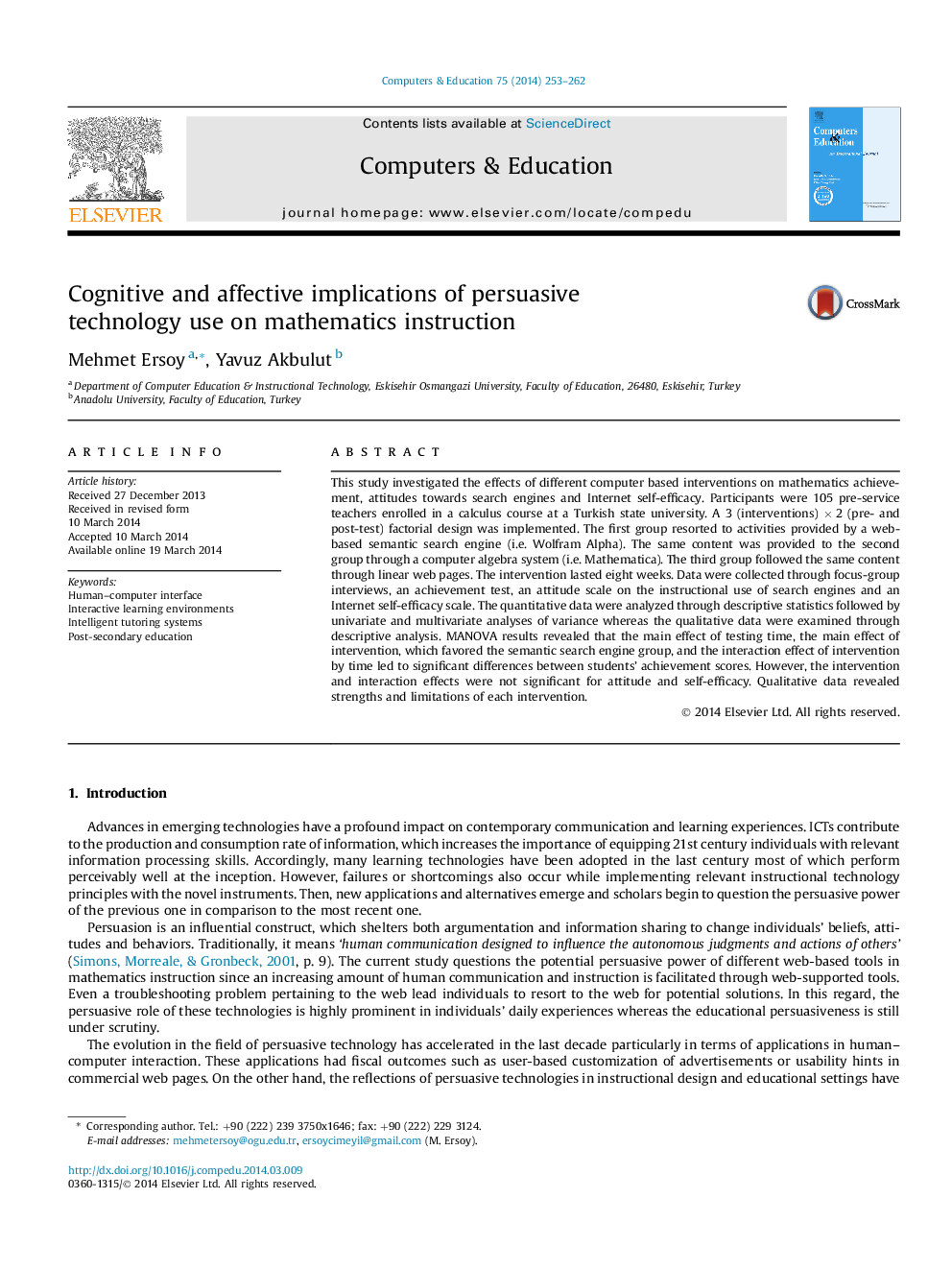| Article ID | Journal | Published Year | Pages | File Type |
|---|---|---|---|---|
| 348427 | Computers & Education | 2014 | 10 Pages |
•All interventions increased achievement, attitude and self-efficacy.•Achievement scores varied with regard to the type of intervention.•Web-based semantic search group had better achievement scores than other groups.•Self-efficacy and attitude variables were similar across interventions.•Limitations and affordances of each intervention were provided.
This study investigated the effects of different computer based interventions on mathematics achievement, attitudes towards search engines and Internet self-efficacy. Participants were 105 pre-service teachers enrolled in a calculus course at a Turkish state university. A 3 (interventions) × 2 (pre- and post-test) factorial design was implemented. The first group resorted to activities provided by a web-based semantic search engine (i.e. Wolfram Alpha). The same content was provided to the second group through a computer algebra system (i.e. Mathematica). The third group followed the same content through linear web pages. The intervention lasted eight weeks. Data were collected through focus-group interviews, an achievement test, an attitude scale on the instructional use of search engines and an Internet self-efficacy scale. The quantitative data were analyzed through descriptive statistics followed by univariate and multivariate analyses of variance whereas the qualitative data were examined through descriptive analysis. MANOVA results revealed that the main effect of testing time, the main effect of intervention, which favored the semantic search engine group, and the interaction effect of intervention by time led to significant differences between students' achievement scores. However, the intervention and interaction effects were not significant for attitude and self-efficacy. Qualitative data revealed strengths and limitations of each intervention.
